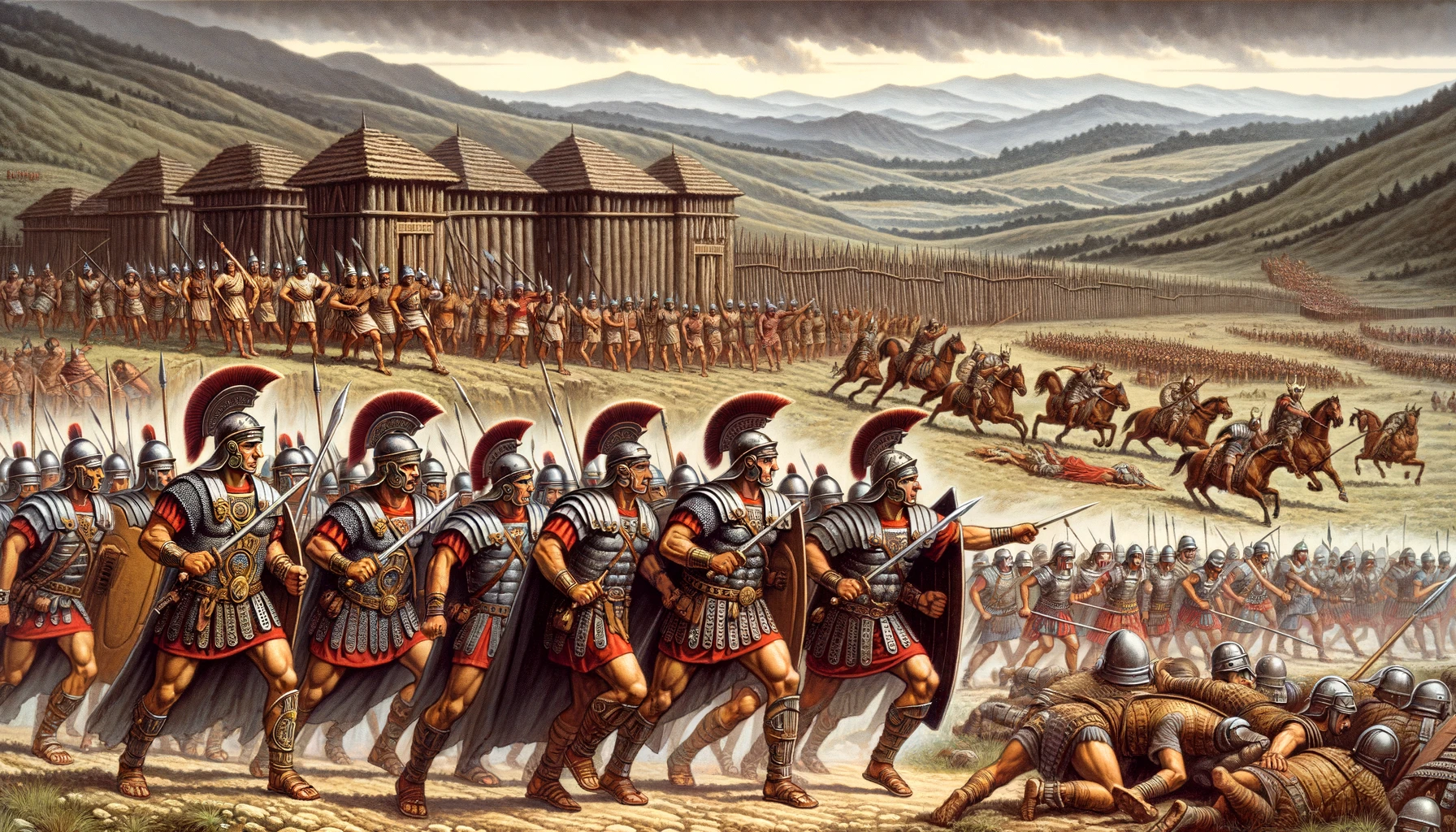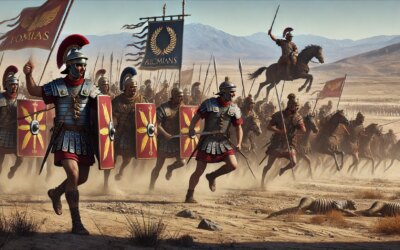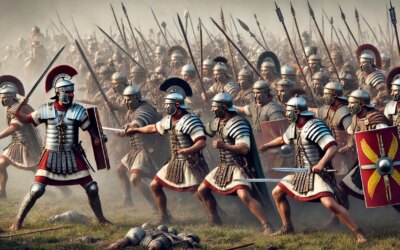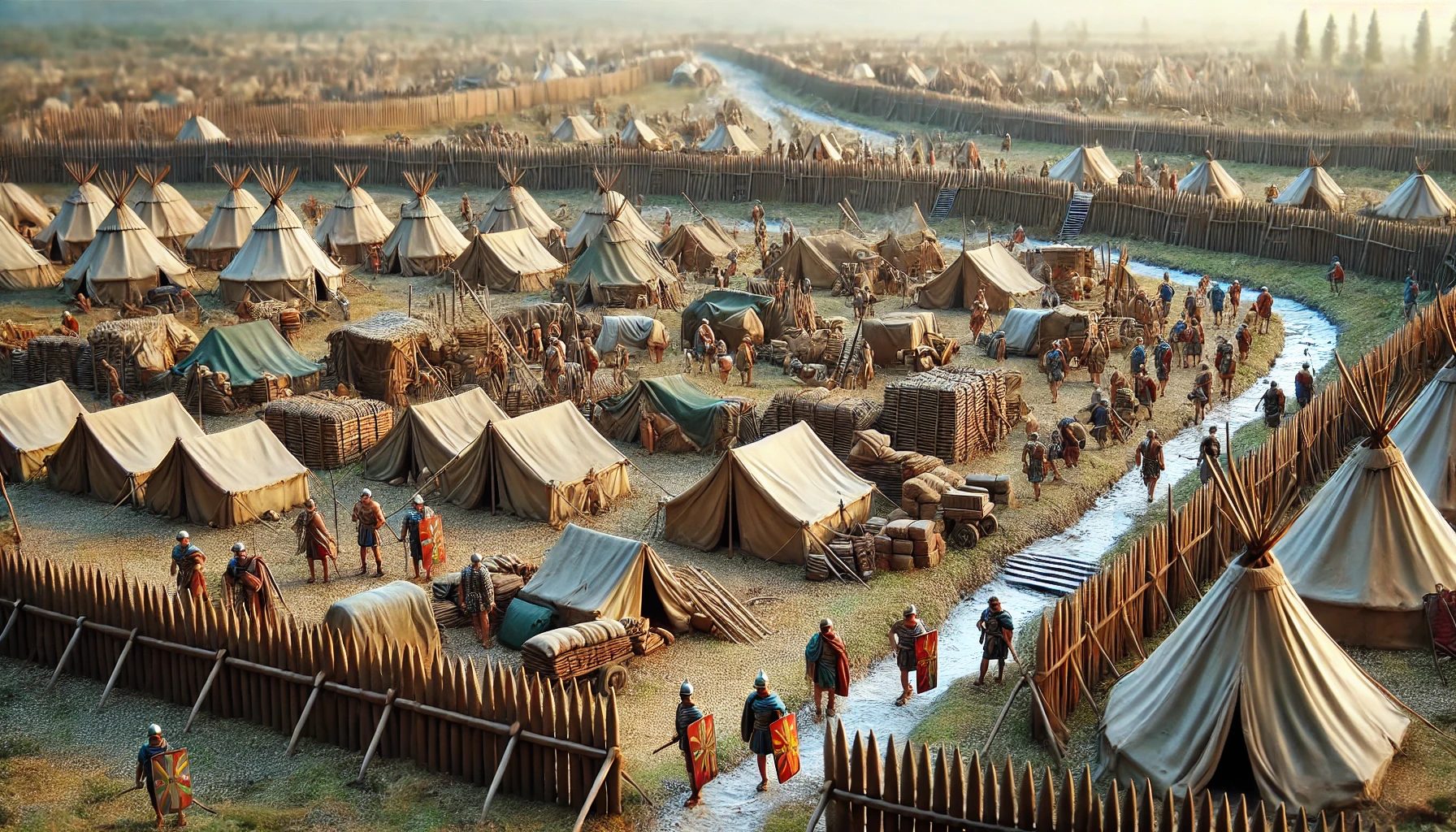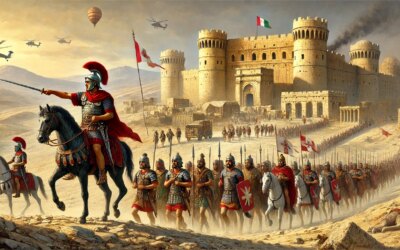Rome’s Northern Ambition
In the early 2nd century AD, Emperor Trajan set his sights on the rich and strategically vital kingdom of Dacia, located in modern-day Romania. The Dacians, led by King Decebalus, had long resisted Roman control, and their incursions across the Danube posed a significant threat to imperial stability. Determined to end this defiance, Trajan launched two campaigns (101–102 AD and 105–106 AD) that would result in one of Rome’s most celebrated conquests.
The First Dacian War (101–102 AD)
In 101 AD, Trajan led a well-organized invasion force across the Danube, constructing massive bridges to facilitate troop movements. The Roman legions, equipped with superior siege technology and disciplined tactics, clashed with Dacian warriors on the rugged terrain of the Carpathian Mountains. After a series of battles, including the decisive engagement at Tapae, Decebalus was forced to negotiate peace, though he remained a persistent adversary.
The Final Conquest (105–106 AD)
Realizing that Decebalus would not remain subdued, Trajan launched a second campaign in 105 AD, this time determined to annihilate Dacia’s resistance completely. The Romans besieged Sarmizegetusa, the Dacian capital, using advanced siege engines and relentless attacks. In 106 AD, the city fell, and Decebalus, refusing capture, took his own life. Dacia was annexed as a Roman province, securing immense gold and silver mines that would fuel the empire’s economy for generations.
The Legacy of the Dacian Wars
Trajan’s conquest of Dacia marked the height of Rome’s territorial expansion. The victory was immortalized in Trajan’s Column, a masterpiece of Roman sculpture that vividly depicts the campaign. Dacia’s wealth strengthened Rome, while its incorporation into the empire facilitated cultural exchanges and economic prosperity.
A Triumph That Echoes Through History
Though Rome’s dominance in Dacia would later wane, the legacy of Trajan’s victory endured. His military genius and strategic vision secured one of Rome’s most enduring conquests, proving that even the most formidable adversaries could not withstand the might of the Roman legions.

